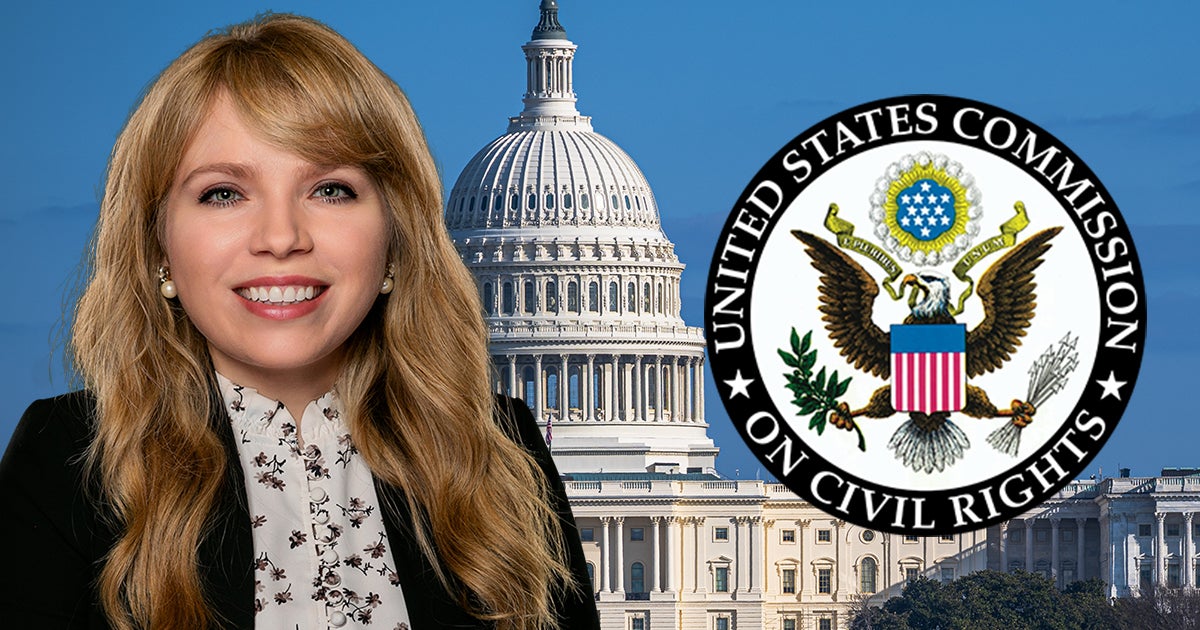
by Jorge Gomez • 2 min read
First Liberty attorney Camille Varone recently testified before the U.S. Commission on Civil Rights. She was invited as a subject matter expert for a Public Briefing on The Federal Role in Enforcing Religious Freedoms in Prison.
The Commission heard from several government officials, religious leaders, academics, prisoners’ rights advocates, religious liberty organizations and legal experts. The briefing focused on whether prisoners’ religious freedom rights are being adequately protected and enforced in accordance with the Constitution and federal law.
Watch the full testimony below:
Varone’s written expounded on the many ways faith and religious liberty can benefit inmates, such as reorienting their moral framework, helping them overcome guilt, depression and self-contempt, and improving their interactions with others in the prison environment. She also highlighted how inmates’ sincere faith reduces their rate of reoffending after they reenter society.
“Faith in something greater than themselves can reduce the inmates’ sense of aimlessness and threat, provide comfort, and improve interactions with those around them in prison,” Varone said. “The data demonstrates that sincere faith—and, importantly, the ability to let that faith flourish—in prison is beneficial not only for the inmates’ own quality of life but for those around them and for society at large.”
Although the free exercise of faith in prison is constitutional and robustly protected by federal law, Varone explained that “in practice, inmates often face hurdles to vindicate these essential [religious liberty] rights” in federal facilities.
She pointed to the time when First Liberty, along with the Harvard Religious Liberty Clinic, represented a prison chaplain and inmates of many faith backgrounds in a federal facility in Minnesota in 2022. The inmates were not allowed to hold or attend weekly worship services for nearly two years. They were also denied requests for religious meal plans, religious preference changes, religious items and study materials, and access to religious volunteers.
Varone concluded by encouraging the Commission and the U.S. Department of Justice to “vigorously defend inmates’ religious rights when opportunities arise.”
You can read Camille’s written testimony here.
Related News:
First Liberty: Attorney Jeremy Dys Testifies Before House Judiciary Committee
First Liberty: Attorney Danielle Runyan Testifies Before House Oversight Committee